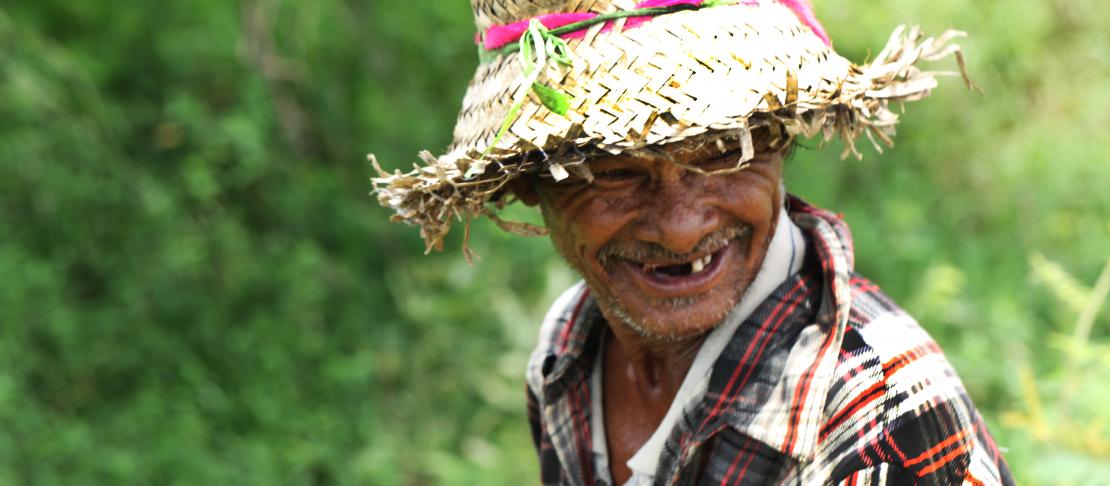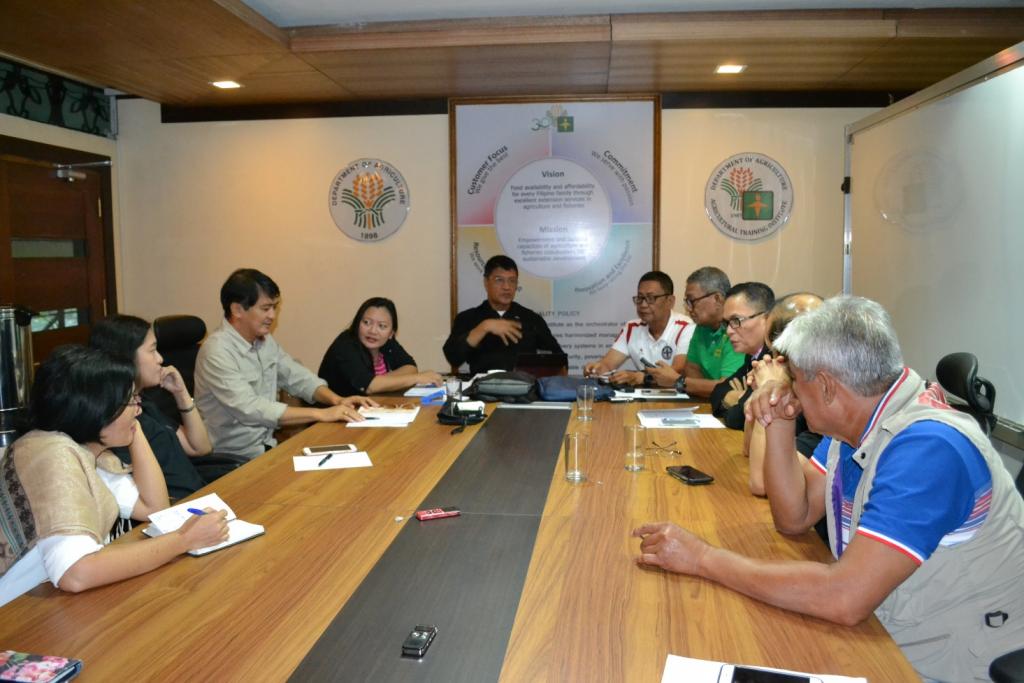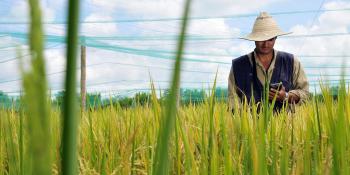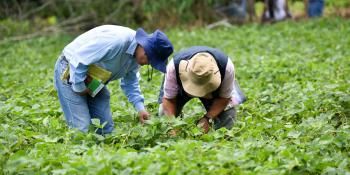Next episode: Phase 2 of radio campaign on climate change

A radio program communicating information about climate change and climate-smart agriculture to farmers aims to capture their attention.
Location-specific materials will be produced in the next phase of “Climate Change: iBroadkas Mo!", a radio campaign that communicates climate change and climate-smart agriculture (CSA) to farmers in the Philippines. The radio will be the primary medium through which media materials will be delivered and will be complemented by other media platforms such as television and social media, as well as multi-sectoral activities among government, media, academia, and the private sector.
The implementation of "Climate Change: iBroadkas Mo!" is led by the Philippine Federation of Rural Broadcasters (PFRB) and funded by the CGIAR Research Program on Climate Change, Agriculture and Food Security in Southeast Asia (CCAFS SEA).
 The PFRB discusses the next phase of “Climate Change: iBroadkas Mo!”, which aims to educate farmers about climate change through the radio. Photo: Renz Celeridad (CCAFS SEA)
The PFRB discusses the next phase of “Climate Change: iBroadkas Mo!”, which aims to educate farmers about climate change through the radio. Photo: Renz Celeridad (CCAFS SEA)
Localized content
Dr. Leo Sebastian, CCAFS SEA Regional Program Leader, has emphasized that messages on climate-smart technologies and services must be translated into local languages to make them accessible to farmers. This alone, however, will not suffice if the campaign aims to educate its intended audience on climate change and mobilize them to adopt climate-smart practices.
The campaign must employ innovative ways to generate interest from its intended audience, an audience that is commonly entertained by other popular content in mainstream media. Aside from targeting its intended audience—the farmers—the campaign must package its messages and other content based on the profiles of government officials, extensionists, and other “next-users.” These people will help link end-users with relevant climate-smart technologies and services.
To track the progress of the campaign and gauge its success, documentation of upcoming activities and media material that will be produced will be crucial. This documentation must be integrated into a rigorous monitoring and evaluation framework. If the campaign is successful, the documentation will help to generate the funds needed to sustain the campaign in the long run.
The PFRB, led by its president Dr. Rogelio Matalang, has vowed to continue this radio campaign for farmers facing the impacts of climate change. It is hoped that this initiative will elevate the discourse on the issue and mainstream it into mass media platforms.
Going forward
In the next two months, three media workshops will be organized in Luzon, Visayas, and Mindanao. They will serve as platforms to educate media practitioners about climate change, to help them to write better stories about the issue. As suggested by Dr. Rex Navarro, CCAFS SEA Consultant and advisor to the PFRB Board, the venues of the workshops will be in areas with strong ties to thriving state agricultural universities. This will build and strengthen partnerships among the government, media, private sector, and academia.
Aside from these media workshops, 120 scripts written in the Tagalog, Bisaya, Ilocano, Maguindanaon, and Maranao languages will be developed to better communicate CSA to farmers. Experts will be tapped in these developments while local testimonies and experiences will be incorporated to add relevance and authenticity to the materials.
Read more:
- Blog: Communicating climate-smart agriculture via School-on-the-Air
- Blog: Linking knowledge with action: The role of media in climate change adaptation and mitigation
- Publication: Kaalamang Pagsasaka sa Himpapawid - School-on-the-Air project on Climate Smart Agriculture (SOA–CSA) in Cagayan Valley: Manual of Operations
Renz Louie Celeridad is the Junior Communications Specialist for the World Agroforestry Centre Philippines. He also works as a Communications Consultant for CCAFS SEA.



